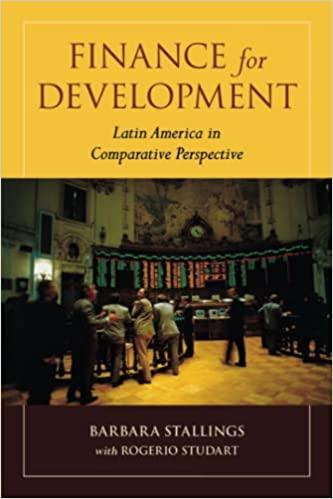Question
Juan O'Sullivan graduated in May and looked everywhere for a job. He searched and searched for a decent job, and after a while he decided
Juan O'Sullivan graduated in May and looked everywhere for a job. He searched and searched for a decent job, and after a while he decided the only way to get ahead was to start his own business. In order to support himself, Juan decided to pursue a life-long dream of owning a hot dog cart in downtown Chicago. Without any substantial savings of his own, Juan borrowed $3,600 for a hot dog cart from the local bank at an interest rate of 2.0% per year, with the loan duration of three years. Computed using simple interest formulas, his annual interest payment is $72. To fund start-up costs, Juan sold his car to buy hot dogs, buns, wrappers, and all the condiments (e.g., mustard, relish, onions, etc.) to make a great hot dog. For accounting purposes, Juan considers the supply cost per hot dog sold is $0.65. Juan always buys supplies in quantities of 1,000 to ensure an adequate inventory supply. Juan hired his best friend from school, Stassi Chen, to help work the hot dog cart. Stassi works 40 hours per week (2080 hours per year) at the rate of $8.00 per hour. In order to be a good employer, Juan provides benefits to Stassi. The cost of these benefits is 29% of Stassi total salary. Note: Juans own compensation is based on the bottom line (i.e., profit or loss) of the business. The price of each hot dog is $3.00. Condiments are free. In addition to selling to the public, Juan has a contract with the Chicago police department --- this contract provides the local police with a $1.75 discount on the purchase of each hot dog. Further, Juan also provides free hot dogs to needy families that cant afford to pay. Sometimes, when a good customer forgets their wallet, Juan will give them a hot dog based on their promise to pay the next day (Juan truly is a good guy). As part of owning a business, Juan also has the need to purchase insurance to protect his business against the threat of fire, flood, or theft. Insurance is $160 per year. According to generally accepted accounting principles (GAAP), Juan should depreciate the hot dog cart in equal amounts over five years. Assume Juan uses Cash-based Accounting and, due to his charitable nature, was able to be considered as a tax exempt business. Construct a Statement of Revenues and Expenses for Juans hot dog business. Use the information from the scenario and from the questions above. Calculate the Net Revenue. [Net Revenue = Charges minus ???] During the course of the year, customers forgot their wallets 375 times. Of these occasions, Juan expects to never receive payment for 350 of the hot dogs. The other 25 he is still holding out hope and believes payment will be received. Include these items on your financial statement. What was the Operating Margin? What is the amount of total fixed assets (equipment) at the end of the year? Assuming no more equipment purchases, what will be the value of total fixed assets at the end of the second year? What is the value of inventory at the end of the year? What is the value of Accounts Receivable at the end of the year? Calculate the Cash Flow using EBITDA as a proxy.
Step by Step Solution
There are 3 Steps involved in it
Step: 1

Get Instant Access to Expert-Tailored Solutions
See step-by-step solutions with expert insights and AI powered tools for academic success
Step: 2

Step: 3

Ace Your Homework with AI
Get the answers you need in no time with our AI-driven, step-by-step assistance
Get Started


